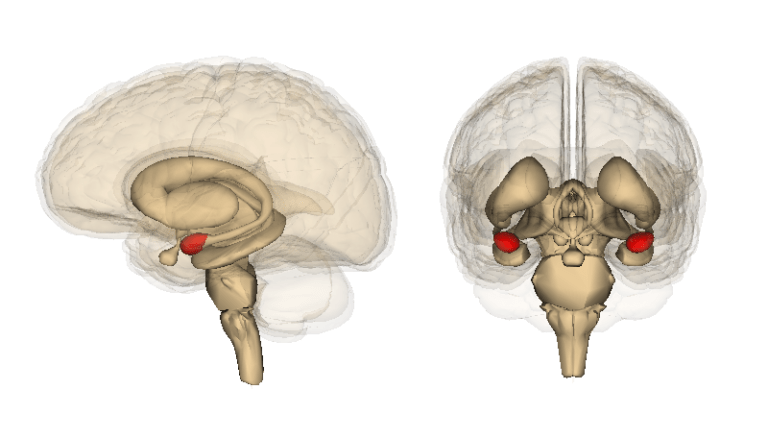The pictures we use in our articles might not show exactly what the words say. We choose these pictures to make you interested in reading more. The pictures work together with the words but don’t take their place. The words still tell you the important facts.
The glomerulus, a minuscule yet intricate component of the human anatomy nestled within the kidneys, serves a critical function in the body's filtration system. This tiny structure composed of specialized cells and blood vessels plays a pivotal role in filtering waste products from the blood to create urine. Despite its size, the glomerulus holds significant importance in maintaining overall health.
Unveiling the Marvel of the Glomerulus
The glomerulus, often likened to a kidney's filter, diligently sifts through the blood, separating waste materials while retaining essential components vital for bodily functions. Damage to this delicate filtration unit can lead to various kidney complications, including high blood pressure and protein in the urine. Understanding the glomerulus and its functions is paramount in safeguarding our well-being.
The Glomerulus: A Pillar of Kidney Function
Situated within the kidney, the glomerulus forms a complex network of blood vessels crucial for filtering out waste products and excess fluids from the bloodstream. This meticulous process ensures a delicate balance of fluids and electrolytes necessary for the body's optimal performance.
Deciphering the Glomerulus’ Specialized Cells
The glomerulus houses specialized cells known as podocytes that create a filtration barrier. These unique cells possess extensions called foot processes, regulating the passage of substances through the filtration barrier with precision.
The Intricate Structure Enhancing Filtration Efficiency
The glomerulus boasts a sophisticated structure designed to maximize its filtration efficiency. Its petite size and extensive surface area facilitate the rapid removal of waste products and water from the blood, ensuring effective filtration.
Navigating Glomerulus-Related Kidney Diseases
Damage or inflammation of the glomerulus can pave the way for various kidney disorders, such as glomerulonephritis and nephrotic syndrome, disrupting its normal function and impairing kidney health.
The Glomerulus’ Role in Blood Pressure Regulation
Through the renin-angiotensin-aldosterone system, the glomerulus aids in blood pressure regulation, maintaining stable blood pressure levels by balancing fluid and electrolyte concentrations in the body.
Unveiling the Impact of Diabetes on the Glomerulus
Poorly controlled diabetes can instigate glomerular damage, leading to a condition known as diabetic nephropathy, a significant contributor to kidney failure.
Understanding Glomerular Filtration Rate (GFR)
The glomerular filtration rate (GFR) serves as a crucial metric for assessing kidney function, measuring the volume of blood filtered by the glomerulus per unit of time. A diminished GFR may indicate compromised kidney function.
Visualizing the Glomerulus Through Microscopy
Utilizing microscopic examination of kidney tissue allows for the visualization of the glomerulus, enabling the identification of structural abnormalities or disease-related indicators within this vital component.
Factors Influencing Glomerular Function
Various factors, including blood pressure, hormones, medications, and certain diseases, can significantly impact the function of the glomerulus. Recognizing these influences is imperative in diagnosing and managing kidney-related disorders.
Beyond the Glomerulus: The Renal Corpuscle
Comprising the glomerulus and Bowman's capsule, the renal corpuscle facilitates the initial stages of urine formation, playing a crucial role in filtering and collecting waste products from the blood.
Embracing the Enigmatic Glomerulus
In conclusion, the glomerulus stands as a remarkable structure within the kidneys, responsible for adeptly filtering blood, eliminating waste products, and preserving essential substances. Immersing oneself in the intricacies of the glomerulus unveils the body's sophisticated filtration system. Embracing the mysteries of this enigmatic component spurs further exploration and appreciation for the wonders of human anatomy.
FAQs: Your Glomerulus Queries Answered
- What is the glomerulus?
-
The glomerulus is a minute tuft of blood vessels situated within the kidney's nephron, vital for filtering blood and urine production.
-
What function does the glomerulus serve?
-
The glomerulus acts as a primary filter, sifting through blood to remove waste products and excess fluids while retaining essential nutrients.
-
How does the glomerulus filter blood?
-
The glomerulus employs a blend of physical barriers and selective filtration methods based on size and charge to separate substances effectively.
-
What factors can compromise glomerular function?
-
High blood pressure, inflammation, and certain diseases can impair glomerular function, leading to conditions like glomerulonephritis and kidney failure.
-
Are there specific disorders related to the glomerulus?
-
Yes, several disorders, including glomerulonephritis, diabetic nephropathy, and nephrotic syndrome, directly affect the glomerulus.
-
Can the glomerulus regenerate if damaged?
-
While the glomerulus has limited regenerative capacity, prompt medical intervention can help slow down the progression of damage.
-
How can lifestyle changes support glomerular health?
-
Maintaining hydration, managing blood pressure, and avoiding excessive alcohol and tobacco use contribute to overall glomerular health.
-
Are glomerular disorders curable?
-
While some glomerular disorders can be managed and progression slowed, complete cure often hinges on the underlying cause and individual circumstances.
-
How can one prevent glomerular disorders?
-
Maintaining a healthy lifestyle, managing chronic conditions like diabetes and hypertension, and regular kidney function monitoring through routine evaluations aid in preventing glomerular disorders.
-
Can the glomerulus be visualized for diagnostic purposes?
- Yes, imaging techniques such as ultrasound, CT scans, or MRIs can visualize the kidneys and detect glomerular abnormalities.
As you delve into the realm of glomerulus intricacies, a realm filled with wonder and fascination, consider broadening your knowledge to uncover even more secrets of the body's filtration system. By nurturing a thirst for understanding, you empower yourself with invaluable insights into the marvels of human anatomy and the importance of kidney health. Explore, learn, and embrace the mysteries that await within the intricate world of the glomerulus.


